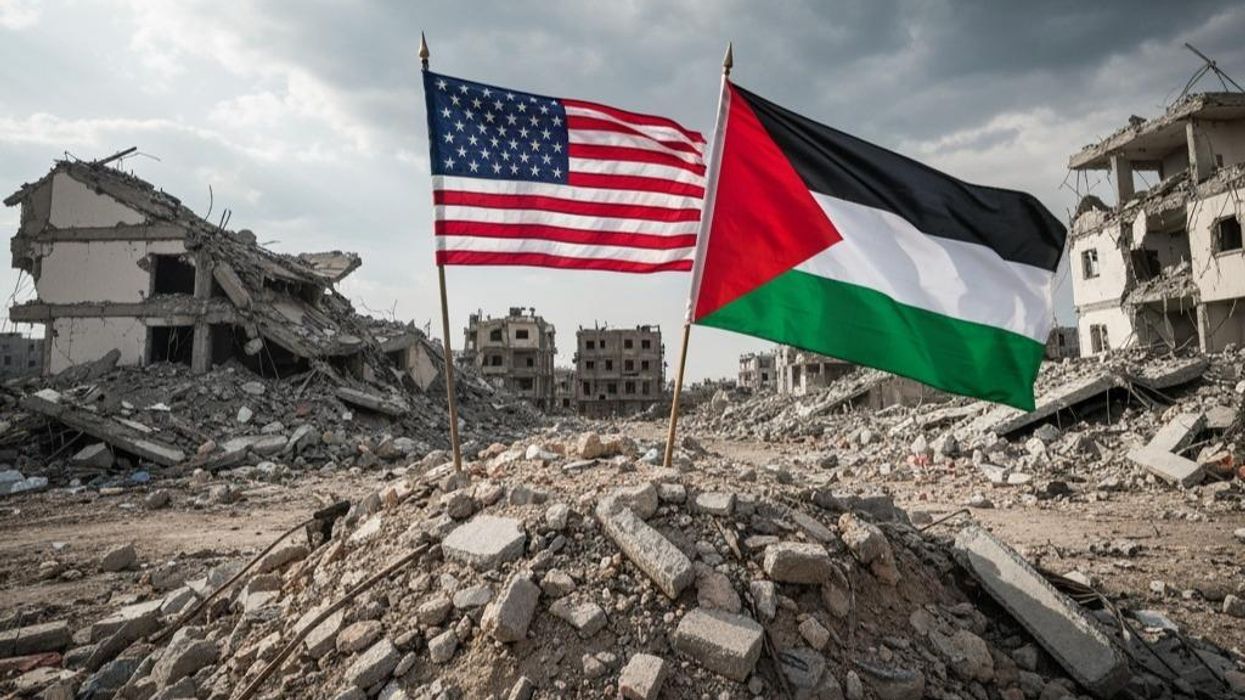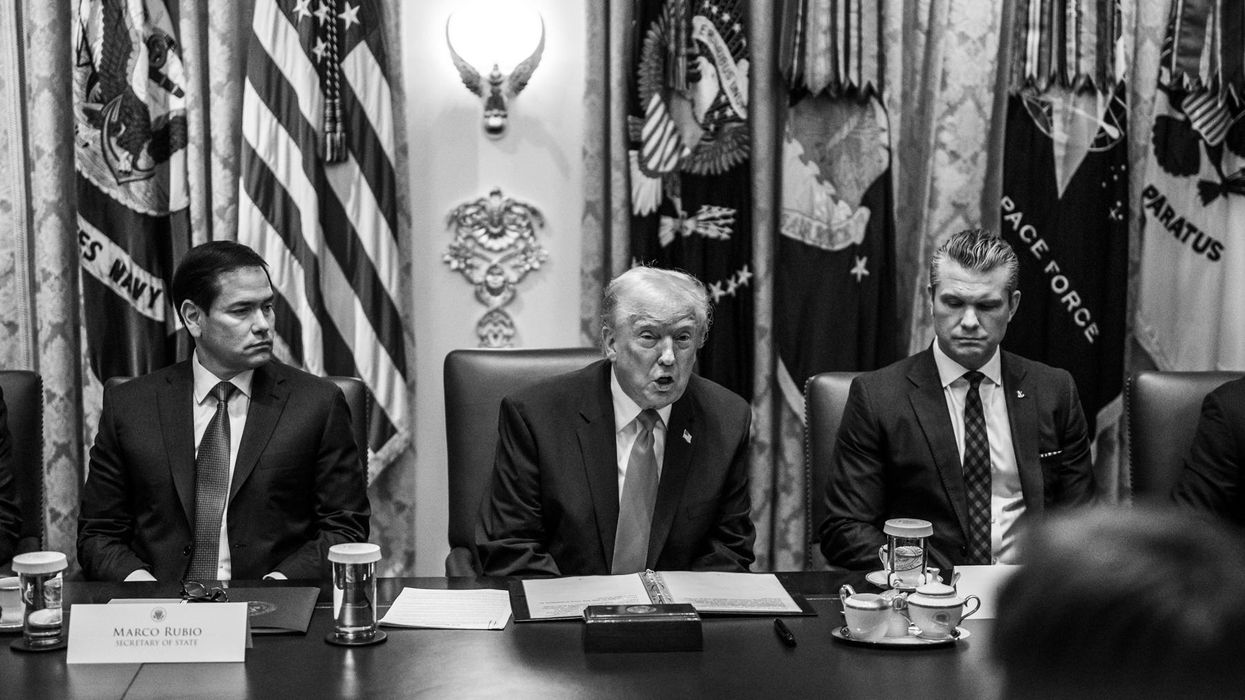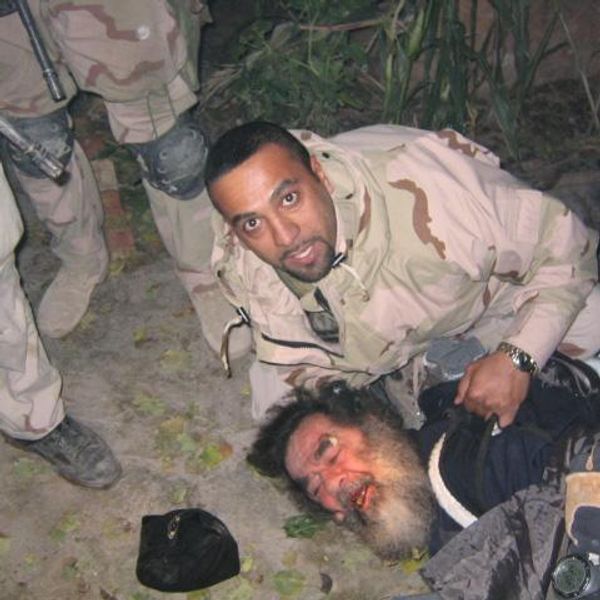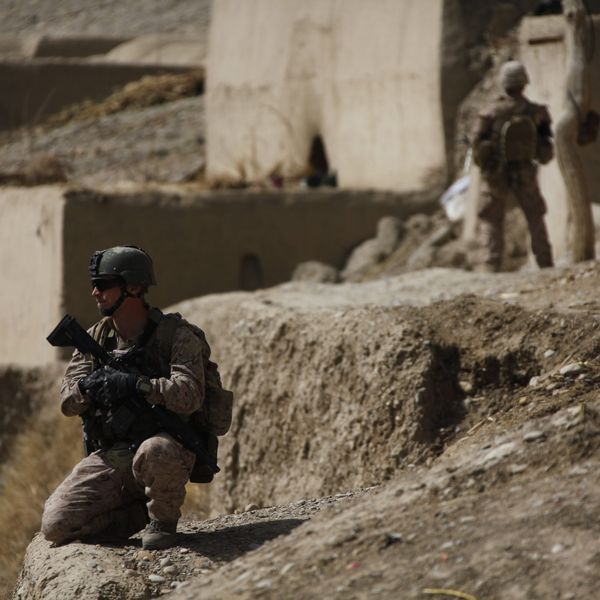What does an antisemitism spewing, Nazi dog-whistling President give his favorite Jewish and Christian zealots for the holidays, after already giving them Jerusalem, settlements, the Golan Heights, the murder of the two-state solution, and the delegitimization of Palestinian national claims, identity, and aspirations?
An Israel exception to the First Amendment, of course.
That’s what Trump’s Executive Order on Combating Antisemitism is, no matter how the White House and credulous, lazy, or dishonest pundits try to sell it.
To be sure, the shifting public debate around the executive order might have confused some people. When it became clear that there were errors in the original report on the order’s exact text, the speed with which some journalists and pundits pivoted from concern about potential governmental over-reach to self-satisfied mocking of those who had sounded the alarm was breathtaking. Even more telling was the readiness of “experts” and supposedly unbiased reporters to adopt a condescending and factually inaccurate message that boiled down to: “this was all a case of leftist hysteria and anti-Trump alarmism, over an order that turns out to be completely non-controversial.”
This effort to shift the debate is an act of misdirection. Don’t fall for it.
Trump’s executive order — celebrated by adherents of what can be shorthanded as the “all-meaningful-criticism-of-Israel-is-illegitimate” crowd — is non-controversial only if you prioritize quashing criticism of Israel over free speech. It is non-controversial only if, in the service of that goal, you support U.S. law conflating Jews, whatever their nationality and wherever they may be, with Israel (a conflation that suggests the New York Times’ original scoop about the order wasn’t as far off as people want to think). It is non-controversial only if, in the service of that goal, you are happy politicizing and cheapening the very notion of antisemitism, at a time when actual, lethal antisemitism is surging in the United States and stalking Jewish communities across the globe.
At the heart of Trump’s executive order is the International Holocaust Remembrance Alliance (IHRA) definition of antisemitism. This definition includes a set of illustrative examples provided as guidelines setting limits on what is to be considered legitimate criticism of Israel, unlike anything that exists for any other country or issue. Notably, these IHRA examples are explicitly referenced in Trump’s executive order, which states that they are to be a resource, “to the extent that any examples might be useful as evidence of discriminatory intent.”
According to these guidelines, criticism of Israel is ipso facto antisemitism if it focuses solely on Israel, rather than targeting other countries with similar critiques. Likewise, criticism of Israel that questions Israel’s right to exist is considered, again, ipso facto antisemitism.
What will that mean in practice? We will soon find out, but as a guess: A Palestinian talking about her lived experience under occupation? Almost certainly antisemitism. A Palestinian refugee talking about what it means to want to return to his ancestral homeland or challenging the Israeli narrative of Israeli manifest destiny in a land-without-a-people-for-a-people-without-a-land? Antisemitism! Student activists trying to organize support for Palestinian human and civil rights? Antisemitism! Likewise, experts and academics on Israel-Palestine like me, or like my colleagues in Israeli human rights groups, talking about their areas of expertise? Say it with me now: Antisemitism.
Given that numerous groups are already waging lawfare against critics of Israel on U.S. campuses, this is by no means hypothetical. Indeed, mere hours after Trump signed his order, a Republican congressman, working in close cooperation with one of the groups that has for years been attacking Israel-related free speech on U.S. campuses, sent a letter demanding that the Department of Education investigate and halt funding to a major U.S. university for activities critical of Israel that now must deemed antisemitism.
The goal of this effort, and the ones that will certainly follow, is clear: to punish campuses that protect free speech on Israel-Palestine, and to have a chilling effect on academic institutions across the board, ensuring that campus administrators and donors choose to preemptively quash criticism and activism related to Israel rather than risk reputational harm, legal jeopardy, and potential loss of funding.
****
While Trump’s executive order may have come as a holiday gift for his closest friends and most fanatical supporters, the road that led to it was paved by almost all mainstream U.S. Jewish organizations, including, shamefully the Anti-Defamation League; by hardline Jewish and Evangelical Christian “Israel-right-or-wring” organizations; by elected progressive members of Congress like Ted Deutch (D-Fla.), Jerrold Nadler (D-NY), and Senators like former Democratic leader Harry Reid (D-NV) and Casey (D-Pa.); and by the efforts of the state of Israel and its surrogates.
These forces — out of ideological zeal, moral cowardice, political opportunism, or deliberate ignorance — have worked ceaselessly to legitimize and promote the view that criticism and non-violent activism targeting Israel is an insidious new kind of antisemitism that, like the old kind, must be rooted out and vanquished.
In this context, the fact that Trump — who appears to be systematically ticking off every item on the “in our wildest dreams” wishlist of the pro-Israel far-right — used an executive order to codify a free speech exception for Israel is wholly unsurprising. Likewise, the actual text of the order was entirely predictable, given that it’s merely the latest iteration of legislation that was first introduced in Congress in 2016, known as the Anti-Semitism Awareness Act (ASAA).
Given its title, it would be natural to assume this measure was designed to address the sharp rise in antisemitism taking place in the Trump era — linked to Trump supporters (and officials) who either are, or have a clear soft spot for, white supremacists, Nazis, and their fellow travelers.
That assumption, sadly, would be mistaken. The ASAA, from Day 1 through enactment via Trump’s executive order, has nothing to do with raising awareness about or combating actual antisemitism. It is and was always about exploiting concerns about antisemitism as a pretext for policing, delegitimizing, and quashing criticism of Israel, with the IHRA definition as the chosen weapon.
This is the point the American Civil Liberties Union made, when it described the ASAA as, “part of a disturbing surge of government-led attempts to suppress the speech of people on only one side of the Israel-Palestine debate. The trend manifests on college campuses, in state contracts, and even in bills to change federal criminal law but the impact is the same: Those who seek to protest, boycott, or otherwise criticize the Israeli government are being silenced.”
What of the claim that the IHRA definition is needed to stop antisemitic attacks on Jewish students? The ACLU also noted: “anti-Semitic harassment is already illegal under federal law. The new bill does not change that fact, but its overbreadth makes it likely that it will instead silence criticism of Israel that is protected by the First Amendment.”
This is also the point made, repeatedly, by Kenneth Stern, who in his former role as the American Jewish Committee’s top official working to counter antisemitism was the lead drafter of the text that became the IHRA’s definition: in 2015, in a piece in the Jewish Journal noting that the “definition that was never intended to regulate speech on a college campus”; in 2016, in the New York Times, arguing that turning IHRA definition into policy or law would be dangerous, counterproductive to fight against antisemitism, and unconstitutional; in 2017, in an an 18-page letter to the House Judiciary Committee, arguing that if this definition is enshrined in law, “outside groups will try and suppress – rather than answer – political speech they don’t like”; and in 2018, when he warned that legislating the IHRA definition of antisemitism could “exacerbate student conflict, damage academic freedom, chill speech and harm the academy more broadly…[and] put students with a variety of critical views about Israel in jeopardy.”
****
Not coincidentally, the effort to legislate a free speech-quashing definition of antisemitism took hold in the Netanyahu era, as the peace process was killed off by Israeli policies and actions vis-à-vis the Palestinians openly aiming at preventing a two-state solution. As Israeli policies became ever-more difficult to defend, and as support of the Palestinians (and most importantly, support for boycotts of Israel and settlements) gained legitimacy and steam, this effort has gained greater traction.
Now, in the Trump era, it serves the dual goals of delegitimizing protest and activism, while distracting from the real antisemitism surging in this country, including antisemitism coming straight from the president himself.
And coincidentally or not, just days before Trump’s executive order was announced, Deutch (D-Fla.) — who has applauded foreign countries that adopted the IHRA definition — published an op-ed in the Times of Israel making the case not just for the passage of the ASAA, but for the U.S. to adopt policy across the entirety of the U.S. government.
Does this mean that U.S. museums would be attacked for hosting events or exhibits deemed too critical of Israel? Would participants in cultural events and festivals, or events at synagogues and Jewish community centers (most of which receive public funds for security) be forced to sign a commitment that they reject boycotts of Israel, and that they promise not to criticize Israel? Would discussion of the occupation, human rights, civil rights, children’s rights, rule of law, and more be exiled from all public venues? We may soon find out.
It is a near certainty that Trump’s executive order will ultimately be challenged in U.S. courts; given current political trends and the state of the courts, it is by no means certain how those cases will play out. In the meantime, serious people should be readying themselves for the very real possibility that Deutch — or Trump himself — will forge ahead to make the IHRA definition applicable to the entire government and to all who receive federal funding. And don’t fall for efforts at misdirection: the implications of such an expansion, just like the implications of the order on its own, are chilling.
















